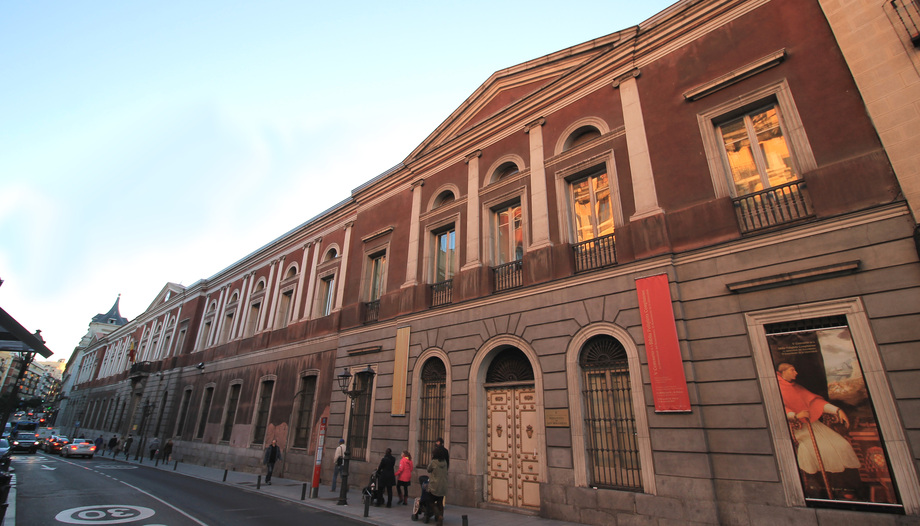Among the most representative books of the conversion literature of the 20th century is "The Conversion of the Church".The extraordinary event". A title that invites curiosity, isn't it? It is a brief and electrifying booklet, resolved with the diaphanous pen of the professor and dean of the Faculty of Philosophy and Letters of the Central University of Madrid, Manuel García Morente (Arjonilla, Andalusia, 1886 - Madrid, 1942).
García Morente was a Kantian philosopher, who declared himself to be an agnostic in the religious sphere. However, after a courageous intellectual journey and the irruption of an extraordinary event in his life, he ended up converting to Catholicism. By then he was not a youngster: he was 51 years old, had daughters and was a widower. And his conversion was so radical that a few years later he decided to enter the seminary.
This booklet was born before García Morente was ordained. priestly. Let us be precise: these pages correspond to the letter that the author sent to his spiritual director to confide to him - with that intimate and secret passion that crackled in the depths of his heart - the mystical experience that had confirmed him in the faith. Naturally, this letter had no pretension of being published: its only public was that spiritual director. Thank God, the letter came to light after the author's death.
If you are already encouraged to read the book and you don't want spoilers, you better abandon this article and go to the library. If this spoiler thing doesn't bother you, you can read on and get a glimpse more or less of what the "extraordinary event" consisted of.
The extraordinary event
The event occurred in Paris, during the night of April 29-30, 1937. But we must go back a few months before that night to understand what happened.
Madrid. García Morente is suffering with the Civil War. He is stripped of his professorship and deanship and, to make matters worse, he receives the news that his son-in-law, an exemplary husband of 29 years, had been killed by the popular militias in Toledo.
The professor is worried about his family and summons his daughters and grandchildren to come and take refuge with him in his house in Madrid. They come, but García Morente realizes that, for him, no refuge is safe. His life is in danger and it is urgent to flee the country. He runs to Paris. There he spends several months alone, penniless and anguished by the uncertainty and constant danger to which his family is exposed.
The days go by in the midst of a deep uneasiness: García Morente is working hard so that his family can also travel to the French capital, but his movements are severely hindered by the authorities. Uncertainty, impotence and loneliness are suffocating him. What to do?
The sense of
In this context of psychological oppression, García Morente's reflection on the meaning of life accelerates: Who directs his life, is it possible that everything is governed by a random chain of efficient causes, or is there an intelligent and superior being that governs History? Suddenly a philosophical and existential itinerary of profound depth had exploded in his heart.
His approach to these questions is rigorously intellectual: he takes pencil and paper and faces his questions. Step by step, with care and sincerity, he develops the arguments to see where logic leads him. He reflects on the circumstances and deliberates on how to overcome the crisis that is taking his breath away.
On April 28, after much pondering, García Morente takes a decisive step: he concludes that there must be a Providence. Now, let us not be hasty, the idea of the Higher Being that at that moment is being sketched in his mind is still distant, abstract and metaphysical. But at least it is real: "The mere thought that there is a wise Providence was enough to reassure me, although I did not understand or see the reason or concrete cause of the cruelty that the same Providence practiced on me, denying me the return of my daughters".
The intellectual battle
Then the mental storm arose, interludes between fury and doubt, a very intense intellectual battle. Until, at a moment of obligatory rest, the professor turned on the radio and listened with great delight to "L'Enfance du Christ", by Berlioz. "You cannot imagine what this is, if you do not know it: something exquisite, very soft, of such delicacy and tenderness that no one can listen to it with dry eyes."
Minutes passed: "An immense peace had taken possession of my soul. It is truly extraordinary and incomprehensible how such a profound transformation can take place in such a short time, or is it that the transformation is taking place in the subconscious long before one is aware of it?
At last the encounter with the living Providence arrives: feelings of peace, joy, promise. Sleep breaks in, at last the longed-for rest for a man so eaten up by nervousness! But something breaks the sweetness of the night: an agitated awakening; it is strange, it is as if there were a presence watching him... García Morente gets up, opens the window and: "I turned my face towards the inside of the room and I was petrified. He was there. I did not see Him, I did not hear Him, I did not touch Him. But He was there.
Among the testimonies of conversion that 20th century literature offers us, that of Manuel García Morente is one of the most eloquent for our current sensibility. By way of epilogue I can tell you that the story ended very well. García Morente's family managed to get to Paris. He was ordained a priest and two years later he rested forever in the arms of Divine Providence.





 G. K. Chesterton. On the centenary of his conversion
G. K. Chesterton. On the centenary of his conversion





